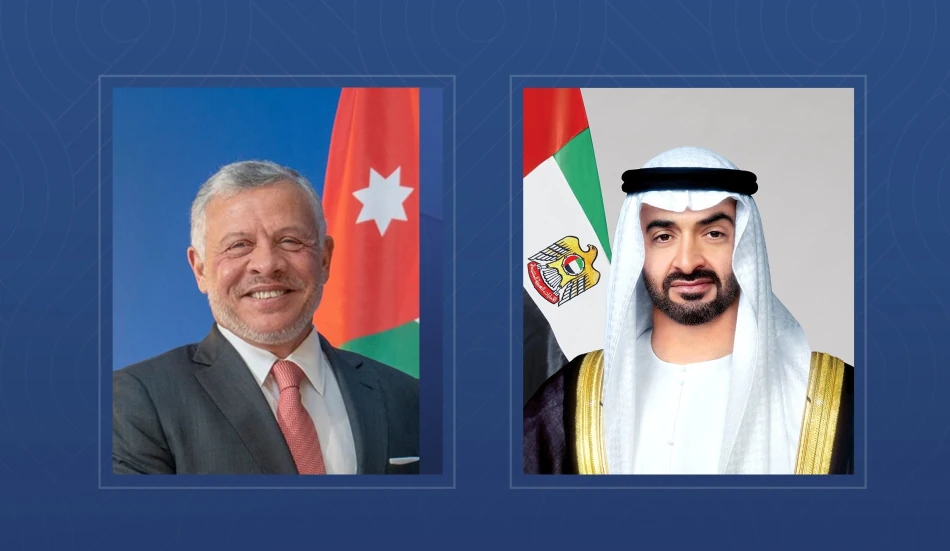
Jordanian King's State Visit Promises Fruitful Discussions
Jordan's King Abdullah II Arrives in UAE for Strategic Working Visit
King Abdullah II of Jordan has arrived in the United Arab Emirates for a working visit that underscores the deepening ties between two of the Middle East's most stable monarchies. The visit, marked by high-level protocol and attended by key UAE leadership, signals continued regional diplomatic coordination amid ongoing geopolitical challenges across the Arab world.
High-Profile Reception Demonstrates Strategic Partnership
UAE President Sheikh Mohammed bin Zayed Al Nahyan personally welcomed King Abdullah II upon his arrival at Al Bateen Airport in Abu Dhabi, a gesture that reflects the significance both nations place on their bilateral relationship. The reception included Abu Dhabi Crown Prince Sheikh Khaled bin Mohammed bin Zayed Al Nahyan and other senior UAE officials, demonstrating the visit's strategic importance.
King Abdullah II was accompanied by a substantial delegation including Crown Prince Hussein bin Abdullah II, Prime Minister Dr. Jaafar Hassan, and Deputy Prime Minister and Foreign Minister Ayman Safadi, indicating the comprehensive nature of discussions likely to take place.
Regional Context and Diplomatic Significance
Strategic Alignment in Turbulent Times
This working visit comes at a critical juncture for Middle Eastern diplomacy. Both Jordan and the UAE have positioned themselves as moderate voices in regional affairs, often serving as bridges between competing powers and facilitating dialogue on contentious issues. Jordan's role as a buffer state bordering Israel, Syria, and Iraq makes its partnership with the economically powerful UAE particularly valuable.
Economic Cooperation Potential
The UAE has emerged as a major investor in Jordan's economy, particularly in renewable energy, infrastructure, and tourism sectors. Jordan's strategic location and the UAE's financial capabilities create natural synergies for expanded cooperation. Recent UAE investments in Jordan's renewable energy sector, including solar projects, demonstrate the practical outcomes of such high-level diplomatic engagement.
Broader Implications for Regional Stability
The visit reflects both nations' commitment to maintaining stability in an increasingly volatile region. Jordan's experience managing refugee populations and border security challenges, combined with the UAE's diplomatic innovation and economic resources, creates a partnership that extends beyond bilateral interests to regional stability mechanisms.
As moderate Arab states navigate complex relationships with global powers while addressing domestic economic pressures, such diplomatic coordination becomes increasingly crucial. The presence of both countries' crown princes in the meetings suggests a long-term strategic vision that extends beyond current leadership tenures.
Looking Forward
While specific agenda items remain undisclosed, the composition of both delegations suggests discussions will likely cover economic cooperation, regional security coordination, and diplomatic alignment on key Middle Eastern issues. The visit reinforces both countries' roles as stabilizing forces in a region where such partnerships are essential for addressing shared challenges and opportunities.
Most Viewed News

 Sara Khaled
Sara Khaled






